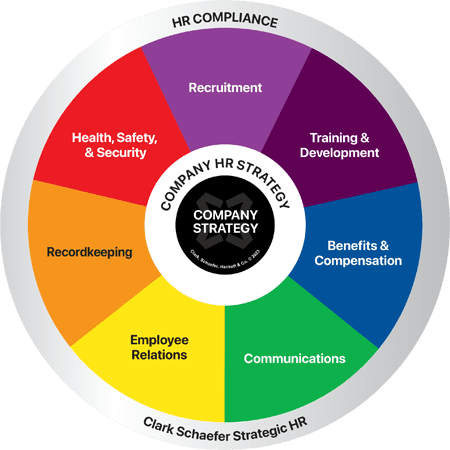How Can Managers Reduce Turnover?
Last Updated on May 16, 2024 / Training & Development

HR Question:
We recently lost a couple of very good employees. They said in their exit interviews that they were offered better pay, but I’m skeptical that was the only reason that they left. I feel that their manager could have done more to make them want to stay. What can our managers do to help retain employees and reduce turnover?
HR Answer:
As you conduct exit interviews, keep in mind that employees may tell you that they are leaving because they got a better offer from another employer, but there are often multiple underlying reasons why they chose to leave. Chances are something triggered them to think about leaving long before they began actively looking for another job. Furthermore, their boss may not have recognized that their employee was even thinking of leaving.
According to Gallup Workplace, 52 percent of exiting employees say that their manager or organization could have done something to prevent them from leaving their job. But only about one-third of former employees said they had a conversation with their manager about leaving before they quit. Wow! If you ever doubted the power of communication, this should allay your skepticism. Imagine how a conversation or two could have dramatically impacted the outcome to be a story of engagement and retention, rather than a goodbye.
Good leaders can reduce turnover and improve retention. The key is understanding what skills a leader must possess to do this. Here are some of the critical skills managers will need to mitigate attrition:
The Power of Active Listening
The simplest way a manager can be alert to the signs of potential turnover is to start listening. Active listening goes beyond just hearing. It requires the manager to devote time to check in with employees on how they’re doing. It also calls for their undivided attention to ensure they truly understand what their employee is saying and how they are feeling. Employees want to feel like their voices and opinions matter. When managers improve the quality and frequency of their conversations with their employees, chances are those team members will feel good that someone cares about them and wants them to succeed.
The Art of Giving Feedback
Managers need to be skilled at giving positive and constructive feedback effectively. Employees typically want to do a good job, and they like knowing that what they do matters. Research by Inc. showed that when people don’t feel they matter, they may also feel isolated, lonely, insignificant, rejected, or socially worthless.
Now more than ever, leaders must prioritize helping people on their team to feel their sense of worth. Clear and specific feedback can help employees to see how their work contributes to the success of their team and their organization. Helping an employee to improve their performance – and recognizing them when they do – can help them to feel valued.
Empower Employees to Solve Problems Themselves
These days, most people have become quite adept at finding answers to questions and solving problems all by themselves, using the Internet, social media, and self-improvement activities. However, at work, they may feel they don’t have the power to make improvements to their own work processes. A manager who uses a coaching style of leadership can help employees feel they are actively involved in improving their work processes. Oftentimes, employees will feel more engaged in their work when they are more empowered.
Stay Tuned into Workloads and Warning Signs of Burnout
It’s important to recognize when an employee is overworked. Burnout is often a key driver of an employee’s desire to look elsewhere. A study by the Wharton School of Business found people are far more likely to quit when given too many difficult assignments in a row, compared with a workflow that is balanced out with easier tasks. A manager who helps an employee simplify their work processes or lighten their workload can significantly improve an employee’s satisfaction at work and their desire to stay.
We’ve highlighted some red flags and critical skills that managers need to implement to help retain their staff. These skills are not innate; they are learned. So, take a look at the training your managers have received. Are they properly prepared to apply the necessary skills? Investing in ongoing training and coaching of your organization’s leaders can make a demonstrable difference in reducing turnover and increasing retention.
Thank you to Terry Wilson, SPHR, SHRM-SCP, Training & Development Practice Manager for contributing to this HR Question of the Week.
We’ve never heard anyone regret training their managers to be effective leaders, but we sure know of plenty who wish they had done it – especially when poor managers have led to ineffective and unproductive teams, low morale, and turnover. Clark Schaefer Strategic HR (CSSHR) can help to set your managers up for success with our Leadership and Management Training. We also provide customized training to meet your specific needs – contact us to learn more.













